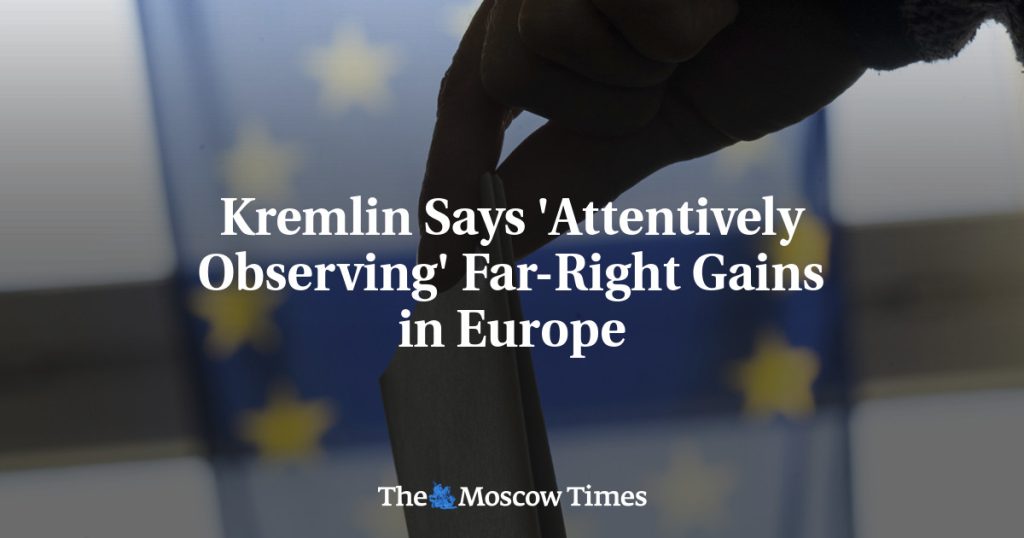The Kremlin is closely monitoring the rise of far-right parties in the EU elections, while acknowledging that pro-European and pro-Ukrainian parties still hold the majority. Kremlin spokesperson Dmitry Peskov stated that while pro-European parties are currently in leadership positions, there is a noticeable trend of increasing popularity of right-wing parties. He emphasized that they are closely observing these developments and how they may impact the political landscape in Europe.
French President Emmanuel Macron’s decision to call a snap general election following the gains of Marine Le Pen’s National Rally was noted by the Kremlin. Peskov refrained from commenting on whether the move dealt a blow to Macron’s liberal party, stating that Russia does not wish to interfere in domestic political matters of other countries. However, he mentioned that Russia will be watching the upcoming general election closely due to the French leadership’s “extremely unfriendly and hostile attitude” towards Russia.
Despite historic pro-Russia links, Marine Le Pen has distanced her party from Moscow since Russia’s invasion of Ukraine in February 2022. This has caused a shift in her party’s stance towards Russia, although she has criticized Macron’s proposed military aid to Kyiv. The Kremlin’s observation of these changing dynamics within the French political landscape indicates a keen interest in how these developments may affect Russia’s relations with European countries, including France.
The Kremlin’s acknowledgment of the rising popularity of right-wing parties in the EU elections reflects a larger trend towards nationalist and anti-establishment sentiment in various European countries. This trend has the potential to shift the political landscape in Europe, with pro-European parties facing increasing competition from right-wing factions. Russia’s attentive observation of these developments suggests a strategic interest in understanding and potentially leveraging these shifts for its own geopolitical objectives.
As the EU elections unfold, the Kremlin’s stance on monitoring the gains of far-right parties and the changing dynamics within European politics underscores its commitment to staying informed and responsive to evolving political landscapes. With the rise of nationalist and anti-establishment sentiments across various European countries, Russia’s observation of these trends positions it to adapt its diplomatic strategies accordingly. The Kremlin’s cautious approach to not interfere in domestic political matters while closely observing these developments suggests a nuanced understanding of the complexities inherent in international relations.
The upcoming French general election and the broader trend of right-wing parties gaining popularity in Europe are key focal points for the Kremlin’s strategic interests. Russia’s response to these developments will likely be guided by its assessment of how these changes may impact its relations with European countries, particularly in light of existing tensions and challenges. By closely monitoring these events and refraining from direct interference, the Kremlin appears to be positioning itself to navigate evolving political landscapes in Europe while safeguarding its own interests in the region.















